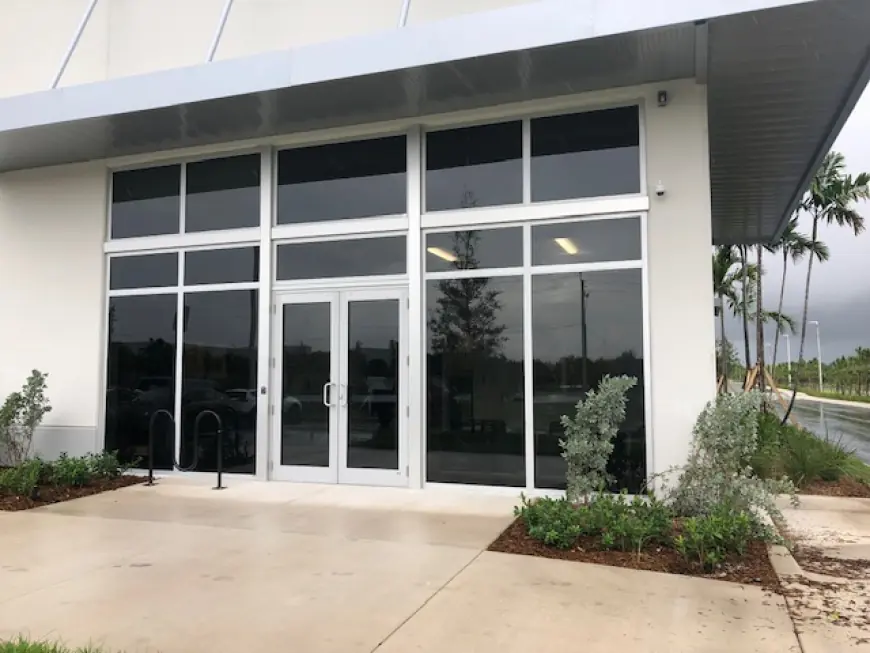Commercial Window Tinting Energy Savings & Security
Investing in commercial window tinting is a strategic decision that offers multifaceted benefits, including enhanced energy efficiency, improved security, and increased occupant comfort. By reducing energy consumption and strengthening building security, window tinting serves as a valuable upgrade for modern commercial facilities.

In today's competitive business environment, optimizing energy efficiency and ensuring security are paramount. One effective solution that addresses both concerns is commercial window tinting. This comprehensive approach not only reduces energy consumption but also enhances the safety and comfort of commercial spaces.
Understanding Commercial Window Tinting
Commercial window tinting involves applying a specialized film to the interior or exterior surfaces of windows in commercial buildings. These films are typically made from polyethylene terephthalate (PET), a durable and clear polyester resin known for its tensile strength and dimensional stability. The primary functions of window films include:
- Heat Rejection: Minimizing the amount of infrared and ultraviolet radiation that penetrates through the glass.
- Glare Reduction: Enhancing visual comfort by reducing glare from sunlight.
- UV Filtration: Blocking harmful UV rays that can cause fading of interior furnishings and pose health risks.
- Safety and Security: Holding shattered glass together to prevent injuries and deter break-ins.
- Privacy and Decoration: Offering various levels of privacy and aesthetic enhancements through different shades and designs.
Energy Efficiency Benefits
Implementing window tinting in commercial buildings offers significant energy-saving advantages:
-
Reduced Heat Gain: By rejecting up to 79% of solar heat, window films help maintain consistent indoor temperatures, thereby reducing the reliance on air conditioning systems. This reduction in heat gain can lead to energy savings of up to 30% or more.
-
Lower Utility Costs: With decreased demand for HVAC systems, businesses can experience substantial reductions in energy bills. Studies have shown that effective window film can reduce energy consumption by 30% or more.
-
Extended HVAC Lifespan: By alleviating the workload on heating and cooling systems, window tinting contributes to less wear and tear, potentially extending the lifespan of HVAC equipment.
Security Enhancements
Beyond energy efficiency, window tinting significantly bolsters building security:
-
Shatter Resistance: Security window films are designed to hold glass fragments together in the event of breakage, reducing the risk of injury from flying shards.
-
Intrusion Deterrence: The added strength makes it more challenging for intruders to penetrate through windows, thereby enhancing the building's security posture.
-
Protection from Natural Disasters: In areas prone to hurricanes or earthquakes, security films can prevent glass from shattering, offering an added layer of safety.
Additional Advantages
Commercial window tinting also provides several other benefits:
-
UV Protection: By blocking over 99% of harmful UV rays, window films protect occupants from potential health risks and prevent the fading of interior furnishings.
-
Glare Reduction: Tinted windows reduce glare, enhancing comfort for occupants and improving productivity by minimizing eye strain.
-
Aesthetic Appeal: Available in various shades and designs, window films can enhance the building's exterior appearance and provide privacy without compromising natural light.
Conclusion
Investing in commercial window tinting is a strategic decision that offers multifaceted benefits, including enhanced energy efficiency, improved security, and increased occupant comfort. By reducing energy consumption and strengthening building security, window tinting serves as a valuable upgrade for modern commercial facilities.

 andyyoung1
andyyoung1 










